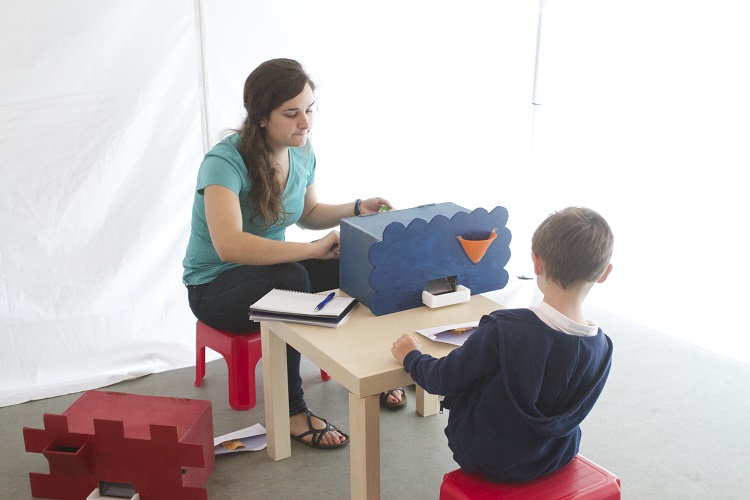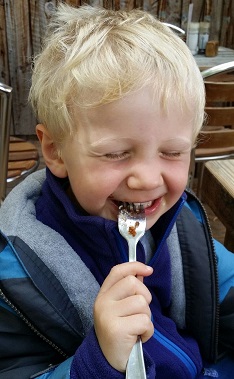Are four-year-olds able to plan for the future?
 A benchmark test to determine whether young children are capable of planning for the future may be flawed, according to new research from the University of St Andrews.
A benchmark test to determine whether young children are capable of planning for the future may be flawed, according to new research from the University of St Andrews.
The spoon test, developed by experimental psychologist and cognitive neuroscientist Estonian Canadian Endel Tulving, is based on an Estonian children’s story tale, in which a young girl dreams about going to a birthday party.
In the dream her friends are eating a delicious chocolate mousse, but the girl cannot because she does not have a spoon with her, and no one is allowed to eat the pudding unless they have their own spoon. As soon as she gets home she finds a spoon in the kitchen, carries it up to her bedroom and hides it under her pillow, in preparation for future birthday parties.
Previous research has found that children pass this test from the age of four. For example, if they first see a box that they need a triangle key to open, they will later take a triangle key over other shaped distractor keys when given a choice of objects. Apes and ravens have also passed this kind of test.
Researchers at the University of St Andrews wondered if there might be a way for children to solve this kind of problem without imagining the future. If one of the items matches the problem they have been exposed to, and the rest do not, perhaps children use association to guide their choice.
 To find out, they taught children to operate two vending machines in tests, some of which were held at the Dundee Science Centre, one with a triangle token and one with a square. Then they took the ‘triangle’ box away. Later, children had a choice between a triangle, a square, and another shape.
To find out, they taught children to operate two vending machines in tests, some of which were held at the Dundee Science Centre, one with a triangle token and one with a square. Then they took the ‘triangle’ box away. Later, children had a choice between a triangle, a square, and another shape.
Most children aged five to seven chose the square, the token that they could use in the near future. But four-year-olds were just as likely to take the triangle.
Dr Amanda Seed, senior lecturer in the School of Psychology and Neuroscience at St Andrews and one of the authors of the study which is published in Current Biology today, said: “It’s as if the past value of the object is more important than what they can do with it in the future.
“What does this mean? For four-year-olds, acting for the future without getting distracted by things that are valuable right now might be difficult.
“You need to do a lot of things, cognitively speaking, to make a plan for the future. Understanding how all of these things come together in child development is a fascinating challenge.
“Our results suggest that association plays a significant role in what pre-school children choose to do, perhaps a more significant one than has been assumed in the past. This will need to be taken into account in future studies of both children and other animals.”
Caption for images: Four-year-olds taking part in the research
The paper, The Role of Association in Pre-schoolers’ Solutions to “Spoon Tests” of Future Planning, by Katherine L Dickerson, James A Ainge and Amanda M Seed is published in Current Biology and is available online. DOI: https://doi.org/10.1016/j.cub.2018.05.052
Issued by the University of St Andrews Communications Office.